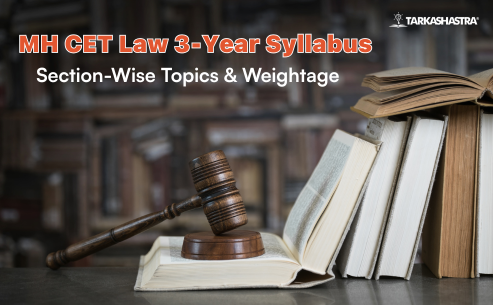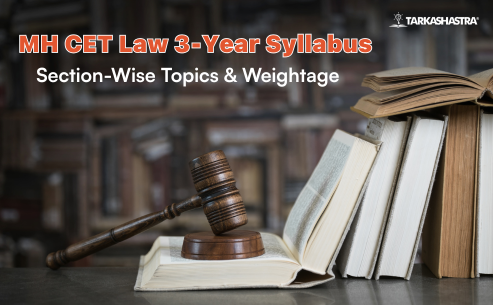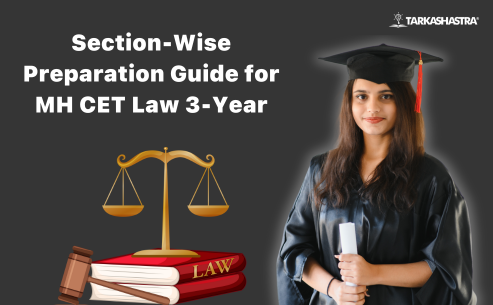Introduction
Choosing a law course after Class 12 is a tough decision for parents and students. Future Indian lawyers can opt for either a 3-year LLB course or a 5-year integrated LLB course, depending on their prior education and the type of job they plan to pursue after graduation.
In this blog, we’ll explain the difference between 3-year LLB and 5-year LLB, covering aspects like LLB course duration, eligibility, course structure, fees, subjects, entrance exams, and career prospects. By the end of this blog, you will have a clear idea of which course to go for.
What is an LLB Course?
An LLB course (Legum Baccalaureus or Bachelor of Laws) is an undergraduate law degree. The course enables students to understand legal principles, case laws, legal frameworks, and judicial procedures. In India, there are mainly two types of LLB courses:
- 3-Year LLB Course: Pursued after graduation (any stream applicable)
- 5-Year Integrated LLB Course: Generally pursued after Class 12
Both programs are recognised by the Bar Council of India (BCI) and enable graduates to practice law or explore careers in legal consultancy, judiciary, academics, and corporate legal services.
Difference Between 3-Year LLB and 5-Year LLB
Here’s a structured comparison of the differences between 3-year LLB and 5-year LLB courses:
| Aspect | 3-Year LLB Course | 5-Year Integrated LLB Course |
| Eligibility | Graduation in any discipline | Completion of Class 12 (any stream) |
| LLB Course Duration | 3 years | 5 years |
| Course Structure | Pure law subjects | A combination of law subjects and a bachelor’s degree, like BA, BBA, B.Com, or B.Sc |
| Typical LLB Subjects | Criminal Law, Contract Law, Constitutional Law, Family Law, etc. | Same as 3-year LLB + non-law subjects like Political Science, Economics, Sociology (for BA LLB), or Business Studies (for BBA LLB) |
| Entrance Exams | Varies by state/university (e.g., MH CET Law, DU LLB Entrance) | CLAT, LSAT India, SLAT, AILET, MHCET Law (5-Year) |
| LLB Course Fees | ₹30,000 – ₹2,00,000 per year | ₹50,000 – ₹3,00,000 per year |
| Ideal for | Graduates from any field who decide to pursue law in the later stages of their career | Students who are mentally clear of having a law career post class 12th |
Detailed Breakdown of Both LLB Courses
3-Year LLB Course
Eligibility:
Applicants should have graduated in any stream with a minimum of 45-50% marks. However, different universities have different selection criteria.
LLB Course Duration:
3 years, 6 semesters.
Course Structure:
Focused exclusively on core law subjects such as:
- Constitutional Law
- Criminal Law
- Property Law
- Family Law
- Corporate Law
- Civil Procedure Code (CPC)
- Indian Penal Code (IPC)
LLB Course Fees:
Varies by college type:
- Government Law Colleges: ₹30,000 – ₹70,000 per year
- Private Law Colleges: ₹1,00,000 – ₹2,00,000 per year
Popular Entrance Exams:
- DU LLB Entrance Test
- MH CET Law (3-Year)
- PU LLB Entrance
- BHU LLB
Who Should Choose This Course:
- Graduates who have completed their bachelor’s degree and are looking for careers in law.
- Professional with existing jobs aiming to switch careers.
5-Year Integrated LLB Course
Eligibility:
12th standard pass with a minimum of 45-50% marks.
LLB How Many Years:
5 years, 10 semesters.
Course Structure:
Integrated with a bachelor’s degree. Available combinations include:
- BA LLB
- BBA LLB
- B.Com LLB
- B.Sc LLB
Law Subjects (LLB Subjects) Include:
- Law of Torts
- Constitutional Law
- Jurisprudence
- Contract Law
- Family Law
- Administrative Law
- Criminal Law
Additional Non-Law Subjects Include:
- Political Science
- Sociology
- Economics
- Business Management (in BBA LLB)
LLB Course Fees:
- Government Law Colleges: ₹50,000 – ₹1,50,000 per year
- Private Law Colleges: ₹1,50,000 – ₹3,00,000 per year
Popular Entrance Exams:
- CLAT (Common Law Admission Test)
- AILET
- LSAT India
- SLAT (Symbiosis)
- MHCET Law (5-Year)
Who Should I Choose This Course:
- Students who are sure about a career in law after Class 12.
- Aspirants who want an early advantage as a law professional.
Key Advantages and Drawbacks
Advantages of 3-Year LLB
- Allowing any graduate from any stream to enter the law..
- More tailored legal education, without any non-law subjects.
- Perfect for working professionals.
Advantages of 5-Year LLB
- Early start to legal education.
- Advantages of a Dual-Degree.
- Saves a year compared to taking a separate graduation degree.
- Better chances at campus placements from top law firms.
Drawbacks
- A 3-year LLB may offer fewer placement opportunities in some private universities.
- A 5-year LLB requires early career clarity.
Conclusion
Both the 3-year LLB course and the 5-year LLB course have their advantages. The choice depends on whether a student decides to start early or later in their life. While the 5-year integrated LLB course suits those committed to a career in law after completing Class 12, the 3-year LLB course is ideal for graduates and working professionals considering a career shift.
Frequently Asked Questions (FAQs)
What is the main difference between a 3-year and a 5-year LLB course?
The 3-year LLB course is pursued after graduation, while the 5-year LLB course is integrated with a bachelor’s degree and pursued after Class 12.
Who should choose the 5-year LLB course?
Students who are sure about pursuing law as a career immediately after Class 12 should opt for the 5-year LLB course.
Can I do a 3-year LLB after completing Class 12?
No, you have to be a graduate to be eligible for a 3-year LLB course.
Are career opportunities different for 3-year and 5-year LLB graduates?
Both are equally significant. However, top law firms prefer 5-Year LLB graduates due to their integrated curriculum.
Which entrance exams are required for 5-year and 3-year LLB courses?
- 5-year LLB: CLAT, AILET, LSAT India, SLAT
- 3-year LLB: DU LLB Entrance, MH CET Law (3-Year), PU LLB, BHU LLB
Is the 5-year LLB course more beneficial than the 3-year one?
The 5-year LLB saves time and offers better campus placement opportunities, but the 3-year LLB provides greater career flexibility post graduation.
Can I become a judge after completing a 5-year LLB?
Yes, you can appear for Judicial Service Examinations in India after completing a 5-year LLB course.
Which one is more cost-effective: a 3-year or a 5-year LLB?
Generally, 3-year LLB courses are more affordable since they are shorter in duration. However, the per-year fees might be of a similar range.







